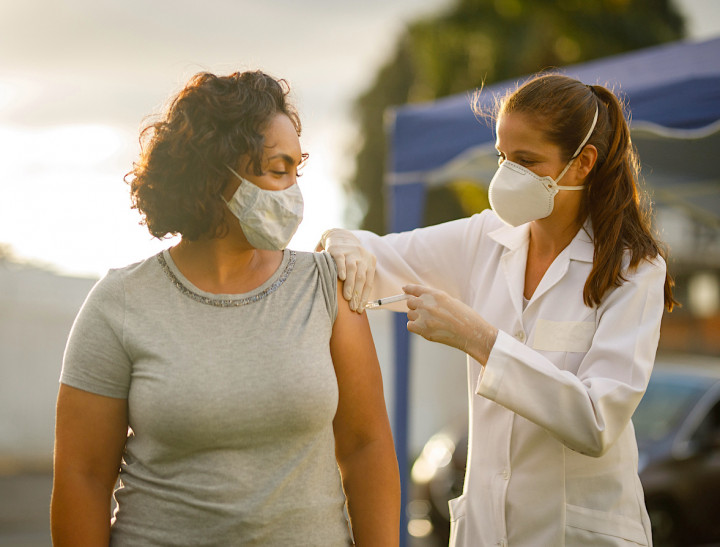Developing Algorithms to Improve Accessibility and Equity for COVID-19 Vaccination Sites
More than two years into the COVID-19 pandemic, the persistent virus continues to rear its ugly head, with the U.S. now nearing one million COVID-related deaths.
While vaccines have proven effective in decreasing COVID-19 deaths and hospitalizations, administering the vaccines continues to be a challenge—both in terms of convincing skeptical individuals to get vaccinated, and in providing easy and equitable access to vaccination sites.
New research between the University of Maryland and the University of Virginia (UVA) is working to address the latter, with experts from both institutions developing sophisticated algorithms that can help health care officials determine the best locations to place vaccination sites.
Their work is described in a paper, “Deploying Vaccine Distribution Sites for Improved Accessibility and Equity to Support Pandemic Response,” to be presented in May at the 2022 International Conference on Autonomous Agents and Multi-Agent Systems (AAMAS).
The paper’s authors include George Li, a UMD sophomore double majoring in computer science and mathematics; Aravind Srinivasan, a Distinguished University Professor of computer science with an appointment in the University of Maryland Institute for Advanced Computer Studies (UMIACS); and Leonidas Tsepenekas, a fifth-year UMD doctoral student in theoretical computer science.
They collaborated on the paper with Ann Li, Madhav Marathe and Anil Vullikanti from UVA.
Their research is focused on not only how to improve the timing and placement of vaccination sites, but also in making the site selection process more equitable. That is, having the sites accessible to populations that rely on public transportation or placing them on commuter routes that people use frequently.
Tsepenekas, who is co-advised by Srinivasan and John Dickerson, an assistant professor of computer science with an appointment in UMIACS, says the UMD team used data provided by the researchers at UVA.
“Our collaborators were already working closely with the Virginia Department of Health in developing algorithms on this topic,” Tsepenekas says. “The initial approaches used problem-solving techniques with no theoretical guarantees. Our team has a lot of experience with these types of facility location problems, and so we were able to help in developing provably good and efficient algorithms that outperformed the initial [computational shortcuts].”
Tsepenekas notes that what differentiates the UMD/UVA study from earlier papers on this topic is the way the researchers considered the mobility patterns of different demographics, not assuming that all people are stationary.
If a person travels to work and then back home, for example, a vaccine center need only be close to one of the two locations that the person traveled to, he says.
Srinivasan, who is active in other large-scale computational efforts in the battle against COVID-19, is particularly proud that students involved on this current project have received notable accolades for their work.
The paper will be honored with a Best Student Paper award at the upcoming AAMAS conference and the two undergraduates working on the project were featured in a video on computational epidemiology produced by the National Science Foundation.
“This is important work that we hope can have an immediate impact,” Srinivasan says. “By using computational tools able to detect discernible patterns in demographics, location and mobility data, we hope to guarantee equal accessibility for anyone wanting to get a vaccination or booster.”
—Story by Melissa Brachfeld
The Department welcomes comments, suggestions and corrections. Send email to editor [-at-] cs [dot] umd [dot] edu.
